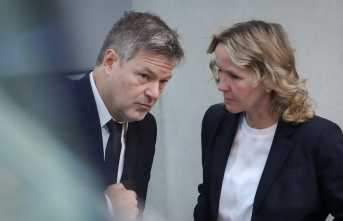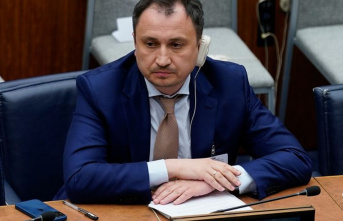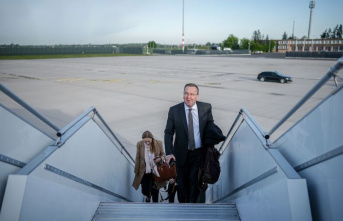This week, a debate on the occasion of the 25th anniversary of the entry into force of the European Charter for Regional and Minority Languages will take place in the Bundestag on the initiative of the parliamentary group "Low German". The anniversary gives reason to celebrate but also allows us to pause. That the national autochthonous minorities are heard is great and cannot be taken for granted. Especially when, like today, parliamentarians at the lectern take the floor in Platt, Danish or Frisian, the languages of our national minorities receive a rare visibility in our society. This is a political sign that strengthens diversity in our country.
However, people who speak one of the regional and minority languages sometimes still have other, negative experiences. A report by a young woman from my constituency stuck in my mind. When the President of the Bundestag Bärbel Bas visited Flensburg at my invitation last year, we met young people from the national minorities to exchange ideas with them. The young woman told us that she had been asked at school not to speak Frisian and Low German. That would sound "stupid" and put her at a disadvantage in her career. Even if the young woman's experience will not be an isolated case, I was speechless. The stigmatization does not always have to be so obvious and derogatory. Sometimes it is simply the inappropriate handling that is expressed in inappropriate trivialization.
What may not be meant "badly" often hits those affected particularly hard because their language is an important part and expression of their cultural identity. Language and culture are closely linked. A culture reproduces itself through unique characteristics of a language, such as idiomatic expressions, grammatical structures and the vocabulary itself. The connection between minorities and their languages is sometimes deeply emotional and identity-forming. It transports a centuries-old cultural heritage. For minorities, celebrating language is a crucial aspect of their cultural life.
Stefan Seidler, born on December 18, 1979 in Flensburg, has been politically active since 1996 in the South Schleswig Voters' Association (SSW) - the party of the Danish and Frisian minority. In 2021 he was the only member of the German Bundestag to represent the party. In 2007 he was EU program manager for the German-Danish funding program "Interreg", then political advisor for the southern Danish regional government for cooperation in the German-Danish border region. From 2014 until entering the Bundestag, he was also the coordinator of the Schleswig-Holstein state government for cooperation with Denmark. Seidler himself speaks the minority languages Danish and Low German.
For a liberal society that respects and lives diversity, the promotion of regional and minority languages does not only concern the people concerned. Rather, the protection and promotion of regional and minority languages is part of a vibrant, pluralistic culture to which we feel committed on the basis of the fundamental principles of our community. In addition to visibility, the promotion of national minorities — their language and culture — is therefore a task for society as a whole for me.
Because the funding is currently more like a dangling from year to year, the minorities living in Germany are always confronted with the same challenges. Due to the lack of permanent funding, those affected often have no more than project funds. However, project funds, insofar as they are approved at all every year, do not allow for advertisements for firmly established full-time positions, thus robbing the minority organizations of any opportunity for continuous cultural work. This affects not only, but especially the language and research area of the minorities. Year after year, education and research programs rely on and depend on good political will.
Without permanent state funding, only voluntary structures remain to keep the regional and minority languages alive in the long term. The result is that they are often culturally lost. Societally and politically we can't really want that. To avoid any misunderstandings: There is nothing wrong with people volunteering their free time. On the contrary, volunteer work is valuable and an important part of an active society. However, there is often an existential difference between benefiting from voluntary work and being deeply dependent on it. Not least because of this, a political commitment to guaranteeing cultural subsistence for our regional and minority languages is required.
Of course, funding is not just about reliable financial resources. Last but not least, I would like to join the demands of the Minority Council to the Ministers of Education of the federal states and according to Article 7(3) of the European Regional and Minority Charter. The transfer of knowledge about the autochthonous minorities and their languages in Germany must be strengthened and included in the nationwide framework curricula. It is of great political and social importance that we address the contradiction between the claim and the reality of the charter. We must be aware that Germany's minorities and ethnic groups make our society more diverse and add social and cultural value.
Importantly, this exchange should not be limited to the regions where the minorities live. In my home country of Schleswig-Holstein, for example, three of the four autochthonous minorities live. Of course, the regions should know "their" minority, but that doesn't mean that minorities are only regionally relevant. They concern us all. Where there are hardly any minorities and their culture and language are not part of everyday life, knowledge and communication about minorities is just as important as in the regions where they are present.
Even if there is still a lot to do. The first step in increasing and sustaining attention towards minorities is to make them a visible part of the public debate. We are taking this important step together today in the Bundestag.











